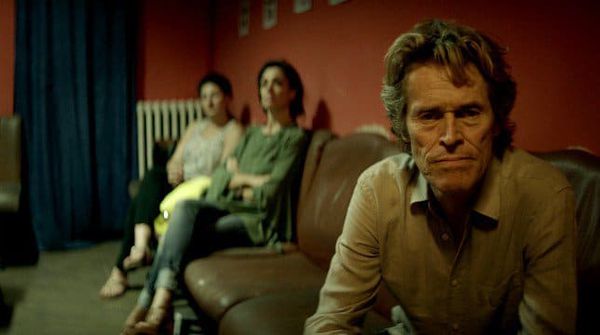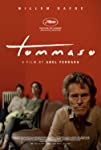Eye For Film >> Movies >> Tommaso (2019) Film Review
Tommaso
Reviewed by: Sunil Chauhan

Willem Dafoe lifts a scrappy portrait of An American In Rome into something of subtle intensity. Abel Ferrara’s first feature in six years is an uneven effort, perhaps a warm-up for his and Dafoe’s next film, Siberia, but fans of the man will find enough to chew on. Playing the eponymous lead, Dafoe is an obvious stand-in for his director, not least made blatant from the casting of Ferrara’s own young wife (Cristina Chiriac) and toddler in the same roles as in their real life.
Like many of Ferrara’s films, Tommaso starts out with seemingly insignificant details, but stacks them until they mount ominously. But there’s little of the awkward sleaze of films like Bad Lieutenant or Welcome To New York. Tommaso finds Ferrara making peace with domesticity, before considering how said home-life might cause the unravelling of a reformed, self-confessed wild-man.

At first, Tommaso looks to be a straightforward character study, following Dafoe as he takes palpable joy in his new, almost work-free life – he learns (seemingly good) Italian in one-to-one tutorials, shops for pasta and makes amiable small talk with the girl behind the bar when ordering coffee. Not insignificantly, their banter ends with her agreeing on his source of stress (“women!”). Once he returns to his apartment (Ferrara’s own), sparsely furnished but in a nice part of town, cooking with his wife, and settling down to an evening snuggle on the sofa, they move towards sex. But no sooner does her underwear come off (the first of many nude women Tommaso will encounter) than seeds of the couple’s rifts start to emerge. And in her gender-based requests for understanding (“I’m a woman”) and his teasing request for sexual acceptance (“I’m a man”), the challenges of parenting and intimacy begin to get teased out.
Never one to turn down an empathic examination of unsatisfied masculinity (even in a superficially blissful scenario as here), Tommaso is warmer and lighter than Ferrara’s famous fare, but this isn’t a customarily bruising, questionable study of male insecurities. Rather, it’s a gentle look at gender role reversal. Older by some two decades than his wife, Tommaso wonders why she doesn’t appreciate his 'experience'; he is the emotionally expressive one, hurt by her independence; she is aloof, indifferent, and refuses to acquiesce. Perhaps it’s Ferrara responding to changing gender mores. That might explain the recurring sequences of Dafoe with young, mostly naked women – you’re never sure if these are daydreams as Tommaso searches for intimacy elsewhere or if he really is philandering, but maybe it’s just Ferrara taunting those campaigning for less brazen displays of female flesh.
As the communication breakdown occurs in the apartment, Dafoe escapes into viewing poor-quality video to research his film (the storyboards we see are in fact for Ferrara’s next film, Siberia), often providing lengthy narrative voiceovers. The protracted oratory surfaces again in several scenes where Dafoe reveals Tommaso’s (or Ferrara’s) previous life in AA meetings, detailing his struggles with substance addiction. While compelling – you almost want Dafoe to turn the camera on his director - these scenes are more tell than show. Where Tommaso loses its footing is the absence of a dramatic psychology to lead to its sudden, shocking, if poorly-paved conclusion, rounded off by a shot of Catholic symbolism that the film doesn’t quite support. Instead it lurches along, from one memorable scene to another (the scene of Dafoe addressing a Pakistani drunk on the street is one with several unexpected, small, but striking shifts) detailing Tommaso’s increasingly obsessive fear and paranoia, but might have benefited from tighter editing and deeper character shading. Shot on a microbudget, it looks it, but it gets by on its superb lead performance, and Ferrara’s trademark sense of unease. Whether it will prove as memorable for those less intrigued by its maker’s biography is less certain.
Reviewed on: 05 Jun 2020
















